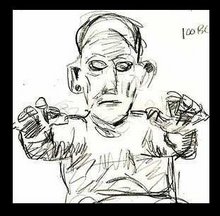I can't vouch for this Kimmel guy but this article certainly sounds plausible and would explain the crazy
I am a violence researcher and study the role of grievances and retaliation in violent crime. Recently, I’ve been researching the way grievances affect the brain, and it turns out that your brain on grievance looks a lot like your brain on drugs. In fact, brain imaging studies show that harboring a grievance (a perceived wrong or injustice, real or imagined) activates the same neural reward circuitry as narcotics.
This isn’t a metaphor; it’s brain biology. Scientists have found that in substance addiction, environmental cues such as being in a place where drugs are taken or meeting another person who takes drugs cause sharp surges of dopamine in crucial reward and habit regions of the brain, specifically, the nucleus accumbens and dorsal striatum. This triggers cravings in anticipation of experiencing pleasure and relief through intoxication. Recent studies show that similarly, cues such as experiencing or being reminded of a perceived wrong or injustice — a grievance — activate these same reward and habit regions of the brain, triggering cravings in anticipation of experiencing pleasure and relief through retaliation. To be clear, the retaliation doesn’t need to be physically violent—an unkind word, or tweet, can also be very gratifying.
Although these are new findings and the research in this area is not yet settled, what this suggests is that similar to the way people become addicted to drugs or gambling, people may also become addicted to seeking retribution against their enemies—revenge addiction. This may help explain why some people just can’t let go of their grievances long after others feel they should have moved on—and why some people resort to violence."
James Kimmel, Politico 2020
https://www.politico.com/news/magazine/2020/12/12/trump-grievance-addiction-444570
7/10/2021
Subscribe to:
Posts (Atom)

